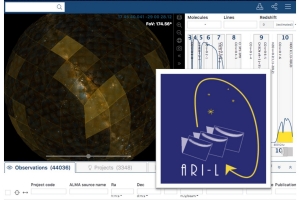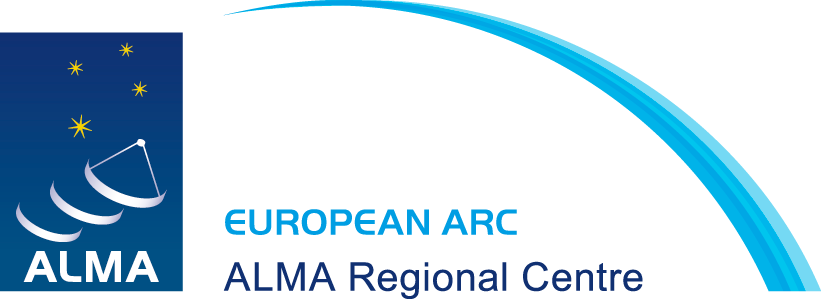The first 60000 data cubes and continuum images generated by the Additional Representative Images for Legacy (ARI-L) ALMA development project are now available to download from the ALMA Science Archive (ASA). In addition to the primary-beam-corrected images, the released products also include the primary beams, and mask for all targets and calibrators of more than 1200 Cycle 3 and 4 datasets.
The First 60000 ARI-L Images are Now Available in the ALMA Science Archive

The ARI-L project is a European ALMA Development project, which officially started in June 2019. Recently, the ARI-L project successfully completed its first year review, with the reported activities well ahead of schedule.
The project aims to increase the legacy value of the ASA by bringing the reduction level of ALMA data from Cycles 2-4 close to that of the data from more recent Cycles, which have been processed with the ALMA calibration and imaging pipeline. Over a period of three years, the ARI-L project will produce and ingest into the ASA a uniform set of full data cubes and continuum images at native spectral resolution, covering at least 70% of the observational data from Cycles 2-4. These cubes and images complement the less comprehensive archived QA2-generated image products, which mostly cover a small fraction of all the spectral windows for those Cycles. The complete set of ARI-L imaging products will be highly relevant for many science cases and significantly enhance the possibilities to use archival data.
The ARI-L image products can be retrieved from the ALMA Science Archive as "Externally delivered products" on the Request Handler download page directly listed below the ALMA data. Furthermore, all the corresponding calibrated measurement sets are stored on the INAF-IA2 facilities and can be requested through the ARI-L project website. Calibrated measurement sets for these and other projects are also made available by the European ARC through the ALMA Helpdesk (see this link for instructions).
Further details on the ARI-L project are on https://almascience.org/alma-data/aril

